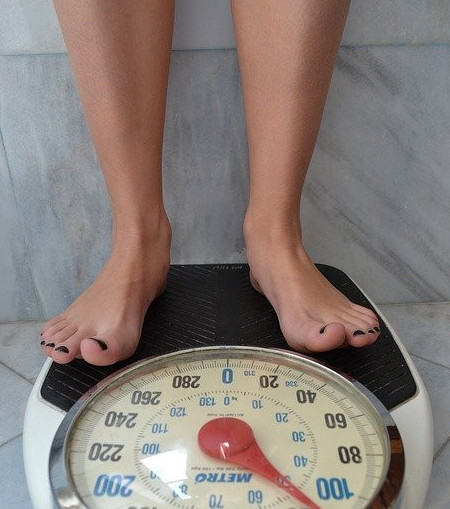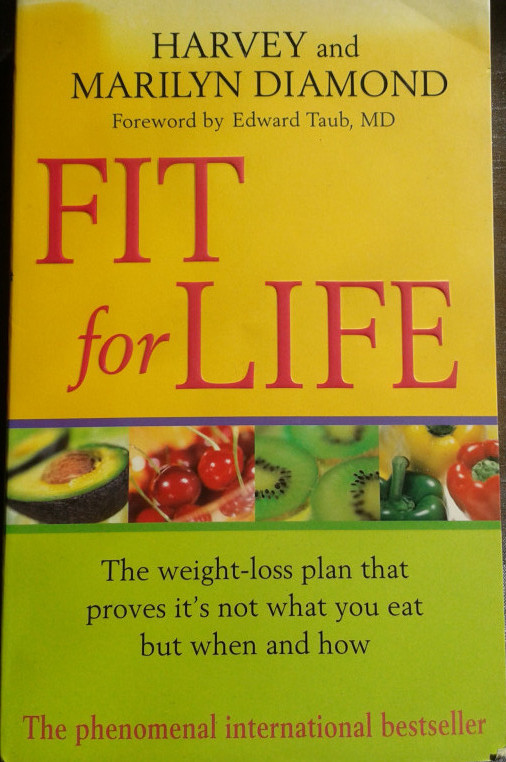What Sugar Does to your Body
We just love sugar, don’t we? Whether it’s a doughnut, an apple pie with lashings of custard or cream, or just four  spoonfuls of sugar in our coffee. So many of us are addicted and have absolutely no resistance to this seductive confection we call sugar; so what does sugar do to your body?
spoonfuls of sugar in our coffee. So many of us are addicted and have absolutely no resistance to this seductive confection we call sugar; so what does sugar do to your body?
We’re talking about processed sugar here, not the healthy fruity kind, and in moderation it’s fine; a little can be hidden in a meal; but in excess the results can be literally lethal.
If we don’t die from eating too much sugar, we can be just fatter, iller (if there is such a word) or just look a whole lot older than we need to, and I’ll tell you why here in these pages.
The sugar-insulin connection
Our bodies are a perfect and amazingly efficient machine and the digestion is no exception. The food we eat is converted into all the things our bodies need; vitamins, minerals, enzymes and glucose.
Glucose is important; it fuels our energy and our brains run on it. The brain and nerve cells get 25% of the total glucose we use each day. Even at rest, our brains use up a greater percentage of our glucose supply than our bodies use with activity.
In order to use this glucose, our pancreas secretes the hormone insulin, which helps the cells to absorb the glucose and use it. When there is a large amount of sugar in our system, we get the appropriate spike in insulin to cope with it.
However, after a large spike, because insulin is so good at reducing the excess sugar in our blood, we then get the inevitable sugar depletion. A typical reaction to low blood sugar is anxiety, sweating and shaking; and this then sends us running for the biscuit barrel or the fridge for another sugar spiking ice cream.
Processed carbs in bread, cakes, biscuits etc raise blood sugar quickly; they have little or no fiber and cause blood sugar to sky rocket and then plummet almost as quickly, which is why we feel so tired after eating them.
So the aim when we are eating is to keep the insulin levels on an even keel by eating foods with natural sugars in them such as legumes, starchy vegetables and whole grains. These raise blood sugar much more gradually and will give you the energy you need for your day.
Over-eating and weight gain
These spikes and dips in blood sugar cause sugar cravings, overeating and weight gain.
One study found that people who increased their sugar intake gained about 1.7 pounds in less than 2 months. Too much sugar in the system can inflame fat cells, which then causes the release of chemicals that increase weight.
Eating processed sugar floods our brains with a chemical called dopamine, one of our feel-good chemicals, which is why we don’t crave carrots or other healthy foods when we’re peckish, because they don’t stimulate as much dopamine to be released. Yet again, sugar has caused us to have another addiction – dopamine.
The excess weight, combined with the inflammation caused by too much sugar, also causes aches and pains in our joints and muscles.
Once you start on the processed sugar train, it’s hard to get off because, as with all addictions, you need more and more to get the same effect. (I’ll tell you how at the end).
Heart disease
Excess sugar in the blood can cause the endolethium (the lining of the blood vessels) to become inflamed; they then grow thicker and more stiff and so the blood has more difficulty in getting through. These artery walls and blood vessels also become stickier and can attract blood clots.
High Glucose levels also make the blood platelets stickier, again risking blood clots, heart attacks and strokes.
If you eat 25% of your calories in the form of added sugar, you are twice as likely to die of heart disease as those whose diets include less than 10% of total calories from added sugar.
Diabetes
You probably already know this, but too much processed sugar and too much weight puts stress on our bodies and can cause massive problems.
When you overload your body with sugar, and the pancreas and kidneys have to work that much harder, producing more insulin and filtering out the waste products, eventually they don’t work so well, and you become type 2 diabetic.
Millions of little blood vessels in the kidneys called glomeruli act as strainers, filtering small waste molecules out of your bloodstream and into your urine. The constant high blood sugar associated with diabetes can damage the glomeruli, which then leak, allowing protein and excess sugar from the blood to seep out into the urine. You then risk kidney failure and the harsh reality of regular trips to the hospital for dialysis, or worse, transplant.
Other effects of high blood sugar in diabetes are:-
- General vision – High blood glucose levels can damage tiny capillaries in the eyes. The capillaries swell and weaken, clog and burst, impairing vision and often causing blindness.
- Diabetic retinopathy. Abnormal production of protein – Kinase C- causes the unnecessary growth of new vessels. These vessels are more prone to leak and burst.
- Nerve damage. High blood glucose damages nerves and can cause diabetic neuropathy.
You can avoid, or even cure, type 2 diabetes with a better diet, free from the sugar that poisoned you.
What you can do
But it’s not all doom and gloom; there’s lots you can do to stop yourself eating so much sugar and get your sweet tooth under control. Here are a few of them:-
- Sleep. Lack of sleep alters the release of glucose regulating hormones, leading to insulin resistance. People who sleep 5
 hours or less a night are a third more likely to develop diabetes. Lack of sleep increases cytokines, the chemical messengers that direct the inflammatory process. Cytokines can also increase insulin resistance. Sleep disorders such as SDB (Sleep Disordered Breathing), Sleep Apnea and regular deep snorers boost the levels of the hormone catecholamines, which may also lead to insulin resistance, thus raising blood sugar. The old adage “Early to bed, early to rise, makes a man healthy, wealthy and wise” may be a good one to follow. Once you habituate your body into having a good 8 hours sleep a night, you should see a marked improvement in general health, including blood sugar levels.
hours or less a night are a third more likely to develop diabetes. Lack of sleep increases cytokines, the chemical messengers that direct the inflammatory process. Cytokines can also increase insulin resistance. Sleep disorders such as SDB (Sleep Disordered Breathing), Sleep Apnea and regular deep snorers boost the levels of the hormone catecholamines, which may also lead to insulin resistance, thus raising blood sugar. The old adage “Early to bed, early to rise, makes a man healthy, wealthy and wise” may be a good one to follow. Once you habituate your body into having a good 8 hours sleep a night, you should see a marked improvement in general health, including blood sugar levels.
- Exercise. People in a Finnish study were able to slash their diabetes risk by 58% with just two and a half hours of
 exercise a week (21 minutes a day). Moderate exercise – walking, biking, swimming, tennis etc is enough to improve your odds.
exercise a week (21 minutes a day). Moderate exercise – walking, biking, swimming, tennis etc is enough to improve your odds.
- Food: If you love nut butters, you’re in luck; they’re both blood-sugar friendly and good sources of appetite-suppressing healthy fats.
- Researchers think that the monounsaturated fats in nuts may build healthier “skin” around the cells, allowing blood sugar to enter more easily; the fiber and magnesium in nuts appear to help manage insulin levels, while their vitamins, minerals, antioxidants and plant proteins may regulate blood sugar and insulin.
- Do keep nut butters at a healthy intake though, as they are high in calories and could cause weight gain if you overdo it; a handful of nuts or just one tablespoon of nut butter a day is plenty.
- Have 4 or 5 small meals a day, instead of the normal 3 – so eat half your sandwich at lunch time and the other half a couple of hours later. This will help your body burn fat more effectively, and keep your blood sugar on an even keel.
And finally, it’s never too late to change the eating habits of a lifetime. I was a terrible sugar addict for years, starting at the school gate.
Every evening on the way home from school my Mum and I would go into the sweet shop and I was allowed to get a bag of the most sugary sweets you can imagine. My haul would grow and grow by the week until, after a while, my Mum would ban them for a week or two until I wasn’t quite so demanding. I’m sure my teeth suffered and eventually, in adulthood, so did my weight.
My savior came in the form of a book called “Fit for Life” by a man called Harvey Diamond and his wife Marilyn, which is all  about combined eating. It didn’t specifically ban processed sugar, but the way of eating was so healthy that my usual favorites were overtaken by healthy ones.
about combined eating. It didn’t specifically ban processed sugar, but the way of eating was so healthy that my usual favorites were overtaken by healthy ones.
My transformation took a matter of weeks.
A 2009 study published in the European Journal of Social Psychology says that it can take anywhere from 18 to 254 days for a person to form a new habit. The average is said to be 66 days for the new behaviour to become automatic.
We all have habits, both good and bad, and they can be hard to get rid of, especially a sugar habit, but it is just that – a habit.
We have them for so long that we think we don’t have a choice -“That’s just the way I am” – but just think; if we change our habits, we change our life;
Not only will we live longer, we will live healthier, happier and less painful lives. A better life not just for ourselves, but all those people around us who love and care about us.
I know which I would rather have.
Here’s to a long and fruitful life; a life well lived.
If you would like to check out Harvey and Marilyn’s book just click on this link.
Anne
Therapeutic Living Inspiration
Please be aware that as an affiliate of Amazon, I will benefit from any purchase you make as a result of clicking on one of my links.
Leave a Reply